Manufacturer Part Number
ATMEGA128-16MU
Manufacturer
Microchip Technology
Introduction
The ATMEGA128-16MU is a high-performance, low-power Atmel AVR 8-bit microcontroller that combines 128KB ISP flash memory with read-while-write capabilities, 4KB EEPROM, 4KB SRAM, 53 general purpose I/O lines, 32 general purpose working registers, and multiple flexible interface options in a compact 64-QFN package.
Product Features and Performance
Advanced RISC Architecture
128KB of In-System Programmable Flash
4KB EEPROM
4KB Internal SRAM
53 Programmable I/O Lines
32 x 8 General Purpose Working Registers
Up to 16 MIPS Throughput at 16 MHz
JTAG Interface for On-chip-debug
Master/Slave SPI Serial Interface
Byte-oriented 2-wire Serial Interface (I2C compatible)
Programmable Watchdog Timer with Internal Oscillator
Product Advantages
High performance and low power consumption
Extensive interfacing capabilities
Large memory capacity for complex applications
Flexible and programmable I/O options
Robust security features including JTAG disable and Watchdog Timer
Key Technical Parameters
Core Processor: AVR
Core Size: 8-Bit
Speed: 16MHz
Connectivity: EBI/EMI, I2C, SPI, UART/USART
Number of I/O: 53
Program Memory Size: 128KB
EEPROM Size: 4K x 8
RAM Size: 4K x 8
Voltage Supply: 4.5V ~ 5.5V
Data Converters: A/D 8x10b
Operating Temperature: -40°C ~ 85°C
Quality and Safety Features
Brown-out Detect/Reset for enhanced stability
Power-on Reset (POR) for safe start-ups
Watchdog Timer (WDT) to prevent system lock-ups
Compatibility
Compatible with the AVR programming and debug tools
Extensive library of compatible AVR peripherals and software tools
Application Areas
Industrial control systems
Automotive applications
Home automation systems
Internet of Things (IoT) devices
Embedded systems requiring significant processing power and memory
Product Lifecycle
Currently active product
Continuously supported with software updates and hardware compatibility
Several Key Reasons to Choose This Product
Reliable performance in harsh conditions (-40°C ~ 85°C)
Robust interfacing capabilities enhance connectivity options
Generous memory resources accommodate complex applications
Efficient power management facilitates low-power design
Comprehensive development ecosystem simplifies programming and integration

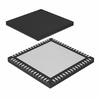

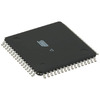

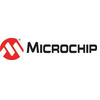 ATMEGA128-MUAtmel (Microchip Technology)
ATMEGA128-MUAtmel (Microchip Technology)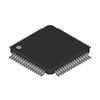 ATMEGA128-16AURAtmelIC MCU 8BIT 128KB FLASH 64TQFP
ATMEGA128-16AURAtmelIC MCU 8BIT 128KB FLASH 64TQFP ATMEGA1280-16AUAtmelIC MCU 8BIT 128KB FLASH 100TQFP
ATMEGA1280-16AUAtmelIC MCU 8BIT 128KB FLASH 100TQFP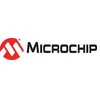 ATMEGA1280-16AURMicrochip
ATMEGA1280-16AURMicrochip